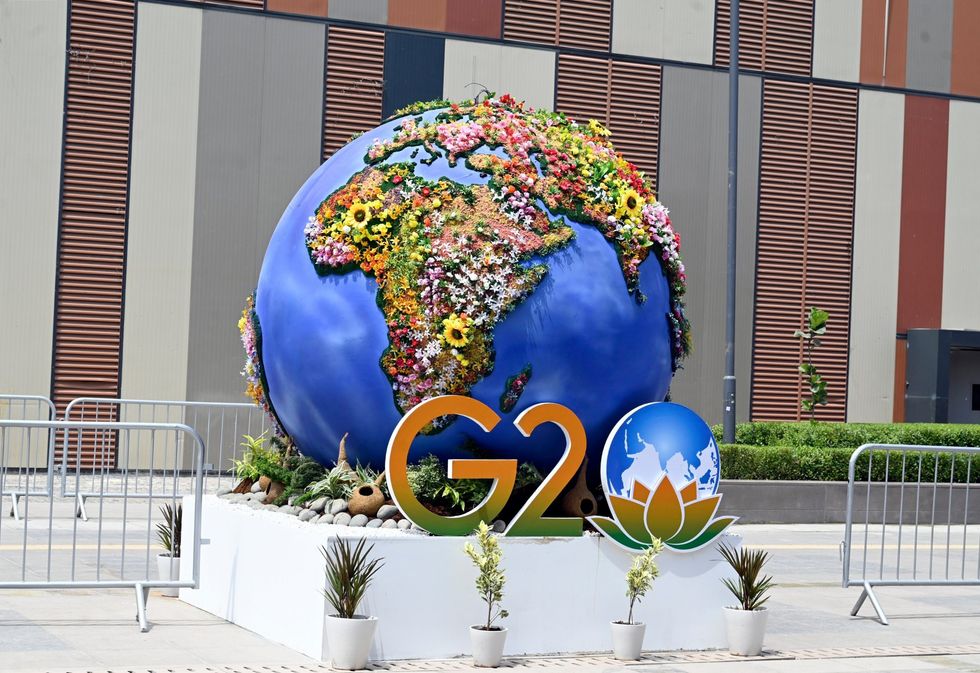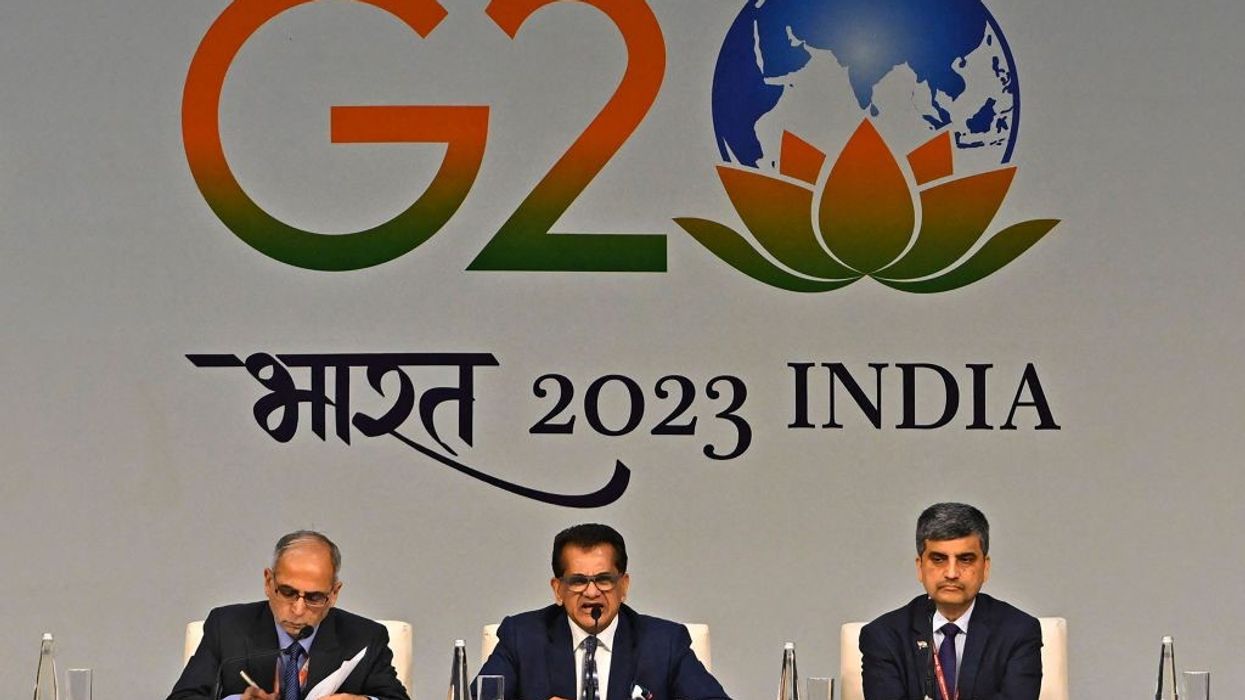LEADERS of the world's wealthiest and most influential nations are set to convene at the two-day G20 Summit in India's capital, New Delhi, commencing on Saturday (9).
This marks India's inaugural hosting of this prestigious assembly of global leaders. The capital city has been adorned with ornate flowers and fountains adorning traffic roundabouts, while public buildings and sidewalks have received a fresh coat of paint.
What is the G20?
The G20 emerged as an economic alliance of the world's 20 major countries in response to the Asian financial crisis in 1999. It was formed on the understanding that such crises could no longer be confined within a single nation's borders and necessitated enhanced international economic collaboration.
The bloc presently represents 80 percent of global gross domestic production (GDP) and 75 percent of international trade. Its member nations encompass Argentina, Australia, Brazil, Canada, China, France, Germany, India, Indonesia, Italy, Japan, South Korea, Mexico, Russia, Saudi Arabia, South Africa, Turkey, the United Kingdom, the United States, and the European Union.
Who is attending?
The following leaders are among those participating in the gathering in New Delhi: US president Joe Biden, president of Argentina Alberto Fernandez, Australian prime minister Anthony Albanese, president of Brazil Luiz Inacio Lula da Silva, British prime minister Rishi Sunak, Canadian prime minister Justin Trudeau, French president Emmanuel Macron, German chancellor Olaf Scholz, president of the European Commission Ursula von der Leyen, president of the European Council Charles Michel, among others.
Notable absentees
Chinese president Xi Jinping (represented by premier Li Qiang), Mexican president Andres Manuel Lopez Obrador, and Russian president Vladimir Putin (represented by foreign minister Sergei Lavrov) will not be in attendance.

One new participant!
This year's summit will feature one new participant - Bangladesh. India's neighboring country will make its debut at a G20 event and is the sole South Asian nation invited to New Delhi for this bloc's meeting.
Key events during the summit
Friday: UN secretary-general Antonio Guterres will host a press conference in New Delhi, Indian prime minister Narendra Modi will engage in discussions with Joe Biden, Modi will also hold talks with Bangladesh prime minister Sheikh Hasina and Mauritius prime minister Kumar Jugnauth.
Saturday: The G20 Summit officially commences, leaders will arrive at the venue in New Delhi and pose for welcome photographs with Modi, two summit sessions will be conducted, followed by a dinner for leaders and delegation heads.
Sunday: Leaders will pay their respects with wreaths at Mahatma Gandhi's tomb in New Delhi, a tree-planting ceremony will take place at the summit venue, the declaration will be adopted, the summit will conclude with a press conference by Indian foreign minister Jaishankar and Sherpa Amitabh Kant in the evening.
How has the bloc evolved over the years?
Initially, only treasury officials met, but following the 2008 financial crisis, heads of all member nations decided to convene annually for a leaders' summit. The G20 Summit is held each year under the leadership of a rotating presidency. Its agenda has expanded over the years, encompassing trade, sustainable development, health, agriculture, energy, environment, climate change, and anti-corruption.
Key issues this year
Under India's year-long presidency, discussions will center around increasing loans to developing nations from multilateral institutions, reforming international debt architecture, regulating cryptocurrencies, and addressing the impact of geopolitical uncertainties on food and energy security. The Indian Presidency will also highlight "Lifestyle for Environment (LiFE)," emphasizing environmentally sustainable choices at both individual and national levels to achieve a cleaner, greener future.
'The world is one family'
India's G20 theme is derived from the Sanskrit phrase 'Vasudhaiva Kutumbakam,' which translates to 'The world is one family.'
Security
For this year's summit, security measures include anti-drone systems and the deployment of 130,000 police and paramilitary personnel. Additionally, cutouts of langurs have been installed to deter monkeys.
Next summit host
India will pass the presidency to Brazil on December 1.





